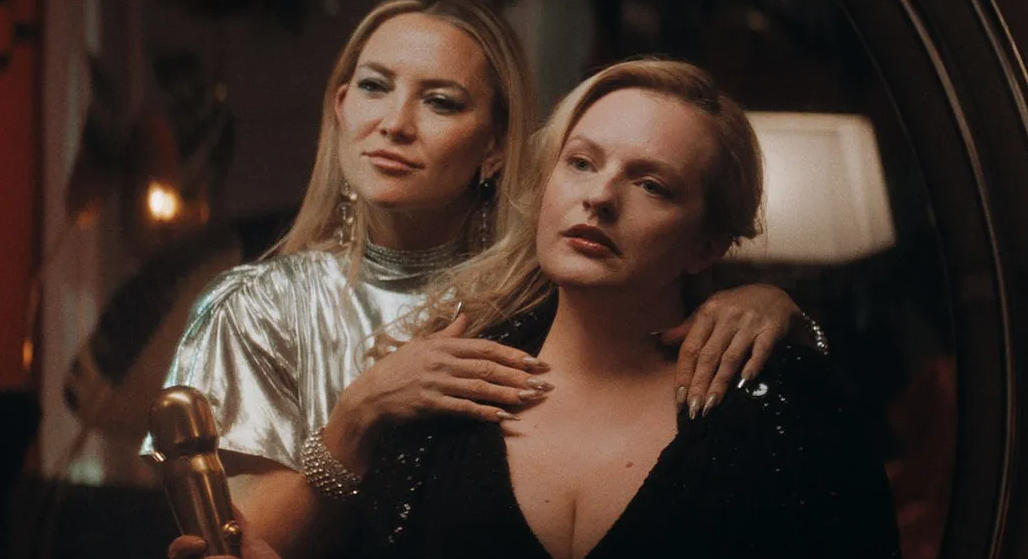- Film And TV
- 08 Oct 24

Roe McDermott on what a slew of new body horror movies tells us about women in cinema and society.
Middle-aged women are having a moment in cinema. Or should we say, middle-aged women, who have always existed, are finally getting a tiny sliver of the rapt attention we have always held for middled-aged men. The Toronto International Film Festival (TIFF) has become a hotspot for these films, featuring several enthralling offerings.
A current release and one of Hot Press’ Films Of The Week, Coralie Fargeat’s The Substance, is an audacious body horror focused on Demi Moore’s actress-turned-workout video star, Elisabeth Sparkler, who takes drastic measures when she’s dropped by her network for being too old. Desperate and dejected, she turns to a mystery drug that splices her genes to birth a new, younger, more perfect version of herself (played by Margaret Qualley).
As the two women start to fight for power, Fargeat’s film becomes a darkly funny exercise in grotesquery, as she shows how women are taught to internalise ageism and sexism. An actress’ pursuit of youth is also the focus of Shell, Max Minghella’s genre-bending film, which premiered at TIFF in September and stars Elizabeth Moss as an ageing actress trying to retain her looks by undertaking a miracle-treatment peddled by a 70-something wellness guru (Kate Hudson).

Kate Hudson and Elizabeth Moss in Shell
Advertisement
While The Substance is all aggressively lurid style and Shell promises a lighter touch, both have pulpy elements. They speak to the frankly terrifying way that women have been systemically devalued as they age, and encouraged to inject any number of mystery concoctions.
Moore’s performance in The Substance is glorious and obviously somewhat self-referential. The actress herself has gone through the stages of being considered a sex symbol, then ageing out of mainstream roles, before a bikini-clad cameo in Charlie’s Angels: Full Throttle started a decades-long dissection of her appearance and cosmetic surgeries.
Another actress whose upcoming film plays on their real-life sex symbol status is Pamela Anderson, who stars in Gia Coppola’s The Last Showgirl, also showing at TIFF. The film focuses on the final days of the Razzle Dazzle, the last nude show on the Vegas strip. Anderson plays Shelley, a veteran dancer who is terrified of the loss of social status that comes with middle age.

The Last Showgirl
Anderson, who has recently reemerged in the public eye and has become an icon for the no makeup movement, has her own complicated history with being publicly objectified and reduced to tabloid fodder. This includes having a tape of her having sex with boyfriend Tommy Lee leaked – what we would now call revenge porn, or intimate image abuse, but which was then simply a form of mass cultural shaming.
It’s clear that trying to remain a desirable woman in a society that does not like women is always going to be a losing task. The standards for women are always moving – so maybe it’s better to just opt out altogether, and embrace a different form of existence – more primal, more free, more… four-legged. Amy Adams – still shamefully not an Oscar winner – brings her fierce intelligence to Nightbitch, Marielle Heller’s new film.
Advertisement

Adams plays an undervalued stay-at-home mother (notably only called ‘Mother’), brimming with unleashed desire and a fury that her passive husband (Scoot McNairy) doesn’t notice. When all this boiling energy is finally unleashed, it’s quite literal – Mother finds herself turning into a dog.
Weaving drama, comedy and magical realism into an audacious exploration of motherhood and identity, Nightbitch may be more body dramedy than body horror, but like the other female-focused films showing at TIFF, it’s all about examining society’s expectations of women and ageing. The film makes it impossible to look away from both the pressure women are put under – but also the power they hold, which is simply waiting to burst forth.










